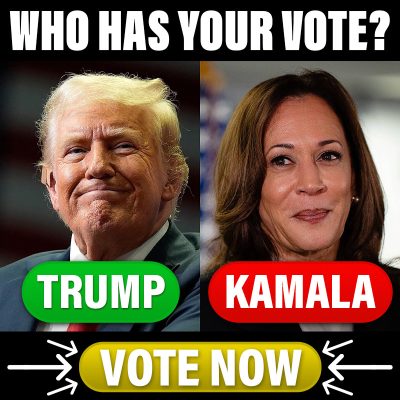2024 GOP frontrunner Donald Trump, along with his top advisors, has engaged in discussions with Tulsi Gabbard, focusing on foreign policy and the operational strategies for the Department of Defense in a potential second term for Trump.
The conversations, reported by the Washington Post, aim to explore alternative management approaches for the DoD, should Trump emerge victorious in the upcoming November elections.
Notably, Trump and the former Hawaiian Democrat representative, Gabbard, have convened in person at least once in the past year. Trump and Gabbard, despite coming from opposing political parties, have a history that has occasionally intersected, reflecting a complex and sometimes supportive dynamic.
A former Democratic Congresswoman from Hawaii, Gabbard has been known for her unorthodox stances within her party, particularly on foreign policy issues. Throughout her career, she has been critical of the Democratic establishment, particularly on matters of war and peace.
Her views on ending “regime change wars” and skepticism towards U.S. military interventions abroad have sometimes aligned with Trump’s own criticisms of endless foreign wars, although for different reasons and from different perspectives.
During Trump’s presidency, Gabbard was one of the few Democrats who met with him during his transition to the presidency in November 2016. The meeting, purportedly about discussing Syria and the U.S. policy there, highlighted Gabbard’s willingness to engage with political figures across the aisle, even as it drew criticism from some within her own party.
The Washington Post reported:
The talks with Gabbard — who has staked out a role as an outspoken critic of aid to Ukraine and U.S. military interventions overseas — are part of a broader conversation about how Trump would manage the Pentagon differently if voters award him a second term. Trump has repeatedly told advisers and donors in recent months that one of his biggest mistakes was his personnel choices at the Pentagon, where he says he was stymied by officials with diverging opinions.
He sought to immediately pull out of many countries where the United States had troops, wanted to withdraw from NATO at times because he said other countries were not paying enough, questioned traditional alliances, praised and negotiated with dictators considered foes of the United States, and clashed repeatedly with the Republican establishment, particularly in the Senate, on foreign policy.
Trump met with Gabbard at least once in person last year. She has often shared Trump’s approach toward the world in his post-presidency, according to advisers who like others spoke on the condition of anonymity to disclose private details. Gabbard and Trump and his team have discussed military entanglements overseas and Trump’s frustrations with Republicans on foreign policy. Trump advisers also hope Gabbard — who serves in the Army Reserve — could appeal to independent voters in a general election, one person familiar with the strategy said, and advocate his military policies.
Gabbard’s relationship with Trump and his base has been nuanced. On some occasions, she has been praised by Trump and conservative commentators for her stances on certain issues, such as her skepticism of the Democratic Party’s handling of the Trump-Russia investigation and her opposition to the impeachment proceedings against Trump.
These positions have sometimes made her a controversial figure within her own party, while earning her a measure of respect from some conservatives and independents who appreciate her willingness to challenge party orthodoxy.
Despite their occasional alignments, Gabbard has also been critical of Trump and his policies, especially on issues where their views diverge, such as on environmental policies, social issues, and certain aspects of foreign policy where Gabbard has emphasized diplomacy over Trump’s sometimes more confrontational stance.
The relationship between Trump and Gabbard is emblematic of Gabbard’s broader political trajectory, which has seen her depart from conventional Democratic Party lines and criticize what she sees as the establishment’s failures, both within her party and in American politics more broadly.
This has led her to be a figure of both interest and controversy, attracting attention and support from across the political spectrum while also facing criticism from within her own party for her engagements with Trump and her positions on various issues.

